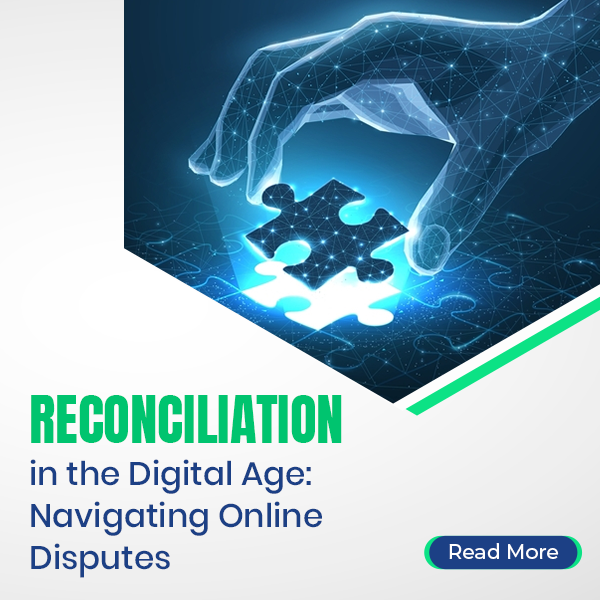In a time when digital communication rules, the ubiquity of online conflicts has become an unavoidable feature of our globalised society. Effective reconciliation is more important than ever in the digital age, whether the conflict stems from online transactions, a heated debate in a virtual group, or a disagreement on social media. This blog will discuss methods for promoting harmony and understanding in the digital sphere as well as the difficulties in settling disputes online.
The Landscape Of Online Disputes
The internet’s anonymity frequently gives people the confidence to express themselves more aggressively, which exacerbates tensions and heightens emotions.
Challenges of Online Reconciliation
The shortage of nonverbal clues in online communication presents another difficulty. Because text-based interactions lack the depth of in-person conversations, it might be more difficult to appropriately discern intent and emotions. A lack of authentic emotional cues, such as tone of voice and body language, can cause misunderstandings and be detrimental.
Strategies for Online Reconciliation
When doing online reconciliation initiatives, it is imperative to put successful strategies into practice. Promoting open communication is crucial, first and foremost. Empathy can be fostered by carefully listening to and paying great attention to the concerns of all parties concerned. Respectfully acknowledging different points of view also lays the groundwork for productive conversation.
Private discussions are essential to reducing the difficulties caused by the public nature of internet conflicts. This change creates a space where people may freely share their opinions without worrying about backlash from the public.
One proactive way to expedite the reconciliation process in the digital age is to use specialised online mediation platforms. This technology-mediated strategy can assist in overcoming the difficulties associated with communicating online and promote amicable solutions.
A framework for effective online reconciliation is provided by discouraging personal assaults and encouraging mutual respect, which encourages understanding and cooperation among all parties concerned.
The Role of Technology in Facilitating Reconciliation
The emergence of artificial intelligence (AI)-powered mediation platforms is one of the significant contributors. These platforms employ advanced algorithms to scrutinise the particulars of a disagreement and suggest equitable and unbiased solutions.
Technology facilitates the creation of easily accessible and secure platforms for cooperation and communication. This fosters mutual understanding and cooperation in the digital age.
Key takeaway
In the era of instant digital communication, handling online conflicts calls for a logical and deliberate strategy. We can facilitate peacemaking and create a more peaceful digital environment by encouraging a culture of attentive listening, having private conversations, and using technology to resolve conflicts. The ability to reconcile continues to be essential for fostering harmony and understanding in the digital era as we navigate the complexity of the internet world.
AutoRecon is a highly adaptable and scalable automated reconciliation in a digital age software solution that operates in real-time, covering the entire organisation from end to end. The transactional feed interfaces with any enterprise’s upstream system and is easily customisable for any business process.















